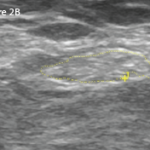NEW YORK (Reuters Health)—Local infiltration of liposomal bupivacaine in patients undergoing total knee arthroplasty (TKA) curbed use of opioids and antiemetics and appeared to be both beneficial and cost effective in a recent study.
As Dr. Bryan Sakamoto told Reuters Health by email, the results “suggest that liposomal bupivacaine is effective as part of a multimodal pain regimen for TKA in the veteran population.”
In an Oct. 12 online paper in JAMA Surgery, Dr. Sakamoto of Richard L. Roudebush Veterans Affairs Medical Center in Indianapolis, Indiana and colleagues note that although liposomal bupivacaine is more expensive than alternative periarticular injection agents, its therapeutic effects last up to 72 hours.1
The drug has recently gained favor as part of the pain control regimen at this institution, and to investigate further, the team reviewed data on patients treatment before and after its introduction.
Comparison of 101 patients who underwent TKA before the change and 98 patients after the change, showed a significant reduction in median use of opioids in the first 24 hours after surgery (12.5 mg vs. 22.5 mg).
In addition, significantly fewer patients in the liposomal bupivacaine group used patient-controlled analgesia (49 vs. 91). Also, in the first 24 hours after surgery and in the postanesthesia care unit, fewer patients used antiemetics (four vs. 20). The number of patients who felt no pain was also greater (44 vs. 19).
One patient in the control group received naloxone for sedation reversal. None did so in the liposomal bupivacaine group. This result in particular, say the investigators, “although not statistically significant, might be deemed clinically significant.”
“Furthermore,” they add, “our study demonstrates a decrease in use of antiemetics, which equates to less nausea and vomiting and presumably greater patient satisfaction.”
However, the researchers note, the groups had similar median opioid use at 48 and 96 hours after surgery, and “moreover, there was a statistically significant increase in median opioid use 72 hours after surgery in the liposomal bupivacaine group.”
Although there was no difference in the median length of stay between groups, the researchers point out that benefits of the approach include “a significant decrease in opioid consumption 24 hours after surgery, reduction in use of PCA, and less use of antiemetics.”
They estimate institutional cost savings as being $27,000 per year.
Commenting by email, Dr. Benjamin G. Domb tells Reuters Health, “A growing body of evidence suggests that liposomal bupivacaine may increase and extend the beneficial effect of local infiltration, and may reduce the need for opioids in the early postoperative period. The current study adds to the evidence that liposomal bupivacaine reduces the need for opioids during the early postoperative period after joint arthroplasty.”
Dr. Domb, who is medical director of the American Hip Institute, Chicago, added, “Decreased opioid requirement may lead to earlier recovery, and lower frequency of opioid-related complications such as falls, constipation, bowel obstruction and mental alterations or confusion.”
At the Hip Institute, he adds, “our preferred technique for hip arthroscopy or robotic, minimally invasive hip replacement includes infiltration of liposomal bupivacaine. Our experience with its use has been excellent, with similar decreases in opioid use, and improved early rehabilitation.”
Reference
- Sakamoto B, Keiser S, Meldrum R, et al. Efficacy of liposomal bupivacaine infiltration on the management of total knee arthroplasty. JAMA Surg. 2016 Oct 12. doi: 10.1001/jamasurg.2016.3474. [Epub ahead of print]



